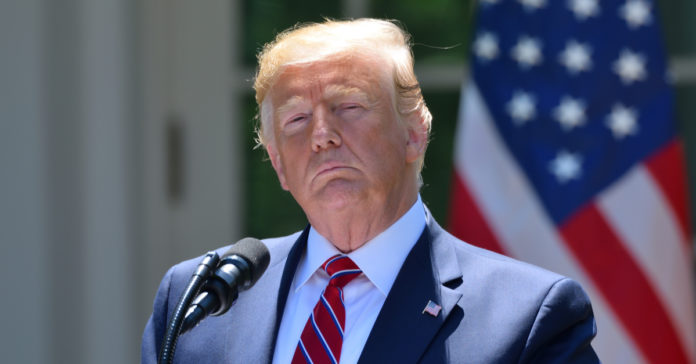
In a victory for the Trump administration, a U.S. federal appeals court has dismissed three lawsuits challenging President Donald Trump’s ban on travellers from predominantly Muslim countries.
A three-judge panel of the Richmond-based 4th U.S. Circuit Court of Appeals found that a federal judge in Maryland made a mistake when he refused to dismiss the lawsuits after the Supreme Court upheld the ban in 2018.
The ban, put in place just a week after Trump took office in January 2017, sparked an international outcry from those who said it was rooted in religious bias.
“We conclude that the district court misunderstood the import of the Supreme Court’s decision in Hawaii and the legal principles it applied,” Judge Paul Niemeyer wrote in the unanimous decision, according to Religion News Service.
During a hearing in January, Mark Mosier, an attorney representing U.S. citizens and permanent residents whose relatives have been unable to enter the U.S. because of the ban, asked the court to allow the legal challenges to proceed.
The plaintiffs argued that the travel ban violates the First Amendment’s Establishment Clause, which prohibits the government from favouring one religion over another.
Mosier said the lawsuits should be allowed to proceed so the plaintiffs can gather evidence on their claim that the travel ban is rooted in anti-Muslim bias and that the Trump administration’s claim of national security concerns is a pretext for the policy.
Subscribe to our newsletter and stay updated on the latest news and updates from around the Muslim world!
But the three 4th Circuit judges who heard the case — all nominated by Republican presidents — repeatedly questioned Mosier about the Supreme Court’s finding that there is a plausible rationale to support the travel ban.
The ban applies to travellers from Iran, Libya, Somalia, Syria and Yemen. It also affects two non-Muslim countries, keeping out travelers from North Korea and some Venezuelan government officials and their families.
In January, the administration imposed new entry restrictions — but not a total travel ban — on travellers from six additional countries, including Myanmar, Eritrea, Kyrgyzstan, Nigeria, Sudan and Tanzania.
Trump has said the ban is aimed at making the U.S. safer from potentially hostile foreigners.





















